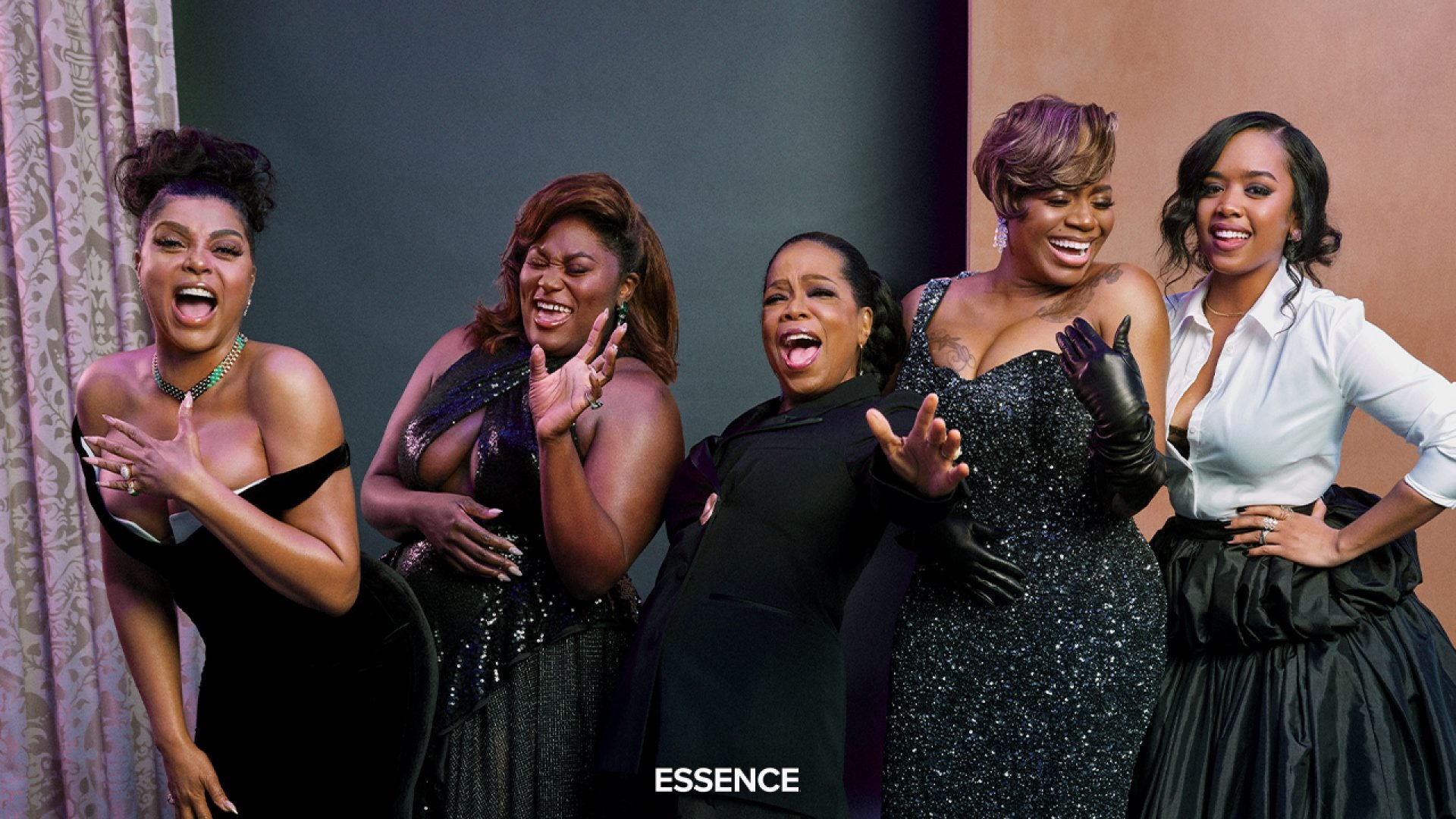
The Color Purple is an American masterpiece.
“This story lives forever,” says Taraji P. Henson, quite emphatically. “It’s like Shakespeare. It’s never going to go away.” Henson, who plays Shug Avery in the 2023 film “reimagining” of the classic tale, reflects on the gravity of this newest iteration and of all the productions that have been based on Alice Walker’s Pulitzer Prize–winning novel.
Walker first published The Color Purple in 1982, and three years later, a Steven Spielberg–directed film adaptation of the narrative was released. The movie received 11 Academy Award nominations, among numerous other accolades. The Color Purple was then staged as a Broadway musical in 2005 and again in 2015, with the latter production garnering two Tony awards—one for best actress, the other for best revival of a musical.
Now, once again, The Color Purple is ready to take the world by storm. Its most recent incarnation is as a movie musical, which will open in theaters on Christmas Day 2023.
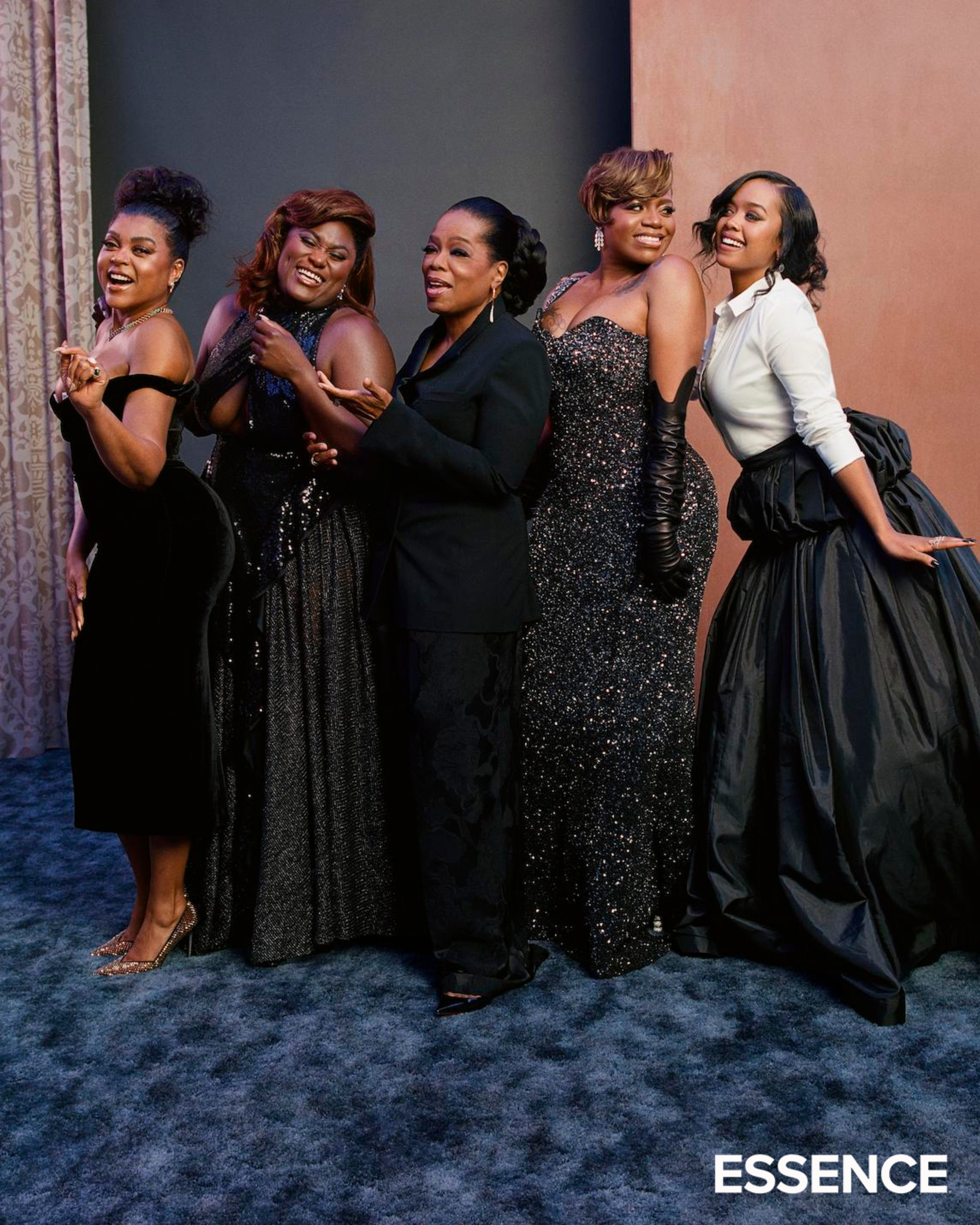
“This is a full-circle moment,” says Oprah Winfrey, who played Sofia in the original Spielberg film. Though it was Winfrey’s first time gracing the silver screen, the role earned her an Academy Award nomination. The Color Purple, she says, “changed everything.”
Decades later, Winfrey remains a champion of Walker’s seminal tale and served as a producer of the 2023 film. She is only one of the heavyweights among the film’s circle of producers: The roster also includes Spielberg, Quincy Jones and Scott Sanders (who brought The Color Purple to Broadway). The newest star-studded cast includes Fantasia Barrino (Celie), Danielle Brooks (Sofia), Henson (Shug), H.E.R. (Squeak), Colman Domingo (Mister), Halle Bailey (Young Nettie), Corey Hawkins (Harpo) and Aunjanue Ellis-Taylor (Mama). To be clear, the film is not intended as a remake of the earlier movie version. Rather, it is a big-screen adaptation of the Broadway musical.
During our ESSENCE cover shoot with the stellar leading ladies, Winfrey herself leads a discussion about the experience they shared of making the movie. “One of the things I’m most excited about is what The Color Purple will do for the -sisterhood,” she says. The other women nod in agreement.
It is awe-inspiring to witness this constellation of stars reflect on their work with such humility and grace. As the women affirm one another, it is clear they have built fortifying relationships, on set and off. At times they even finish each others’ sentences, their onscreen chemistry still evident even though the cameras have stopped rolling. There’s just -something about The Color Purple, they say. It has made them all sisters.
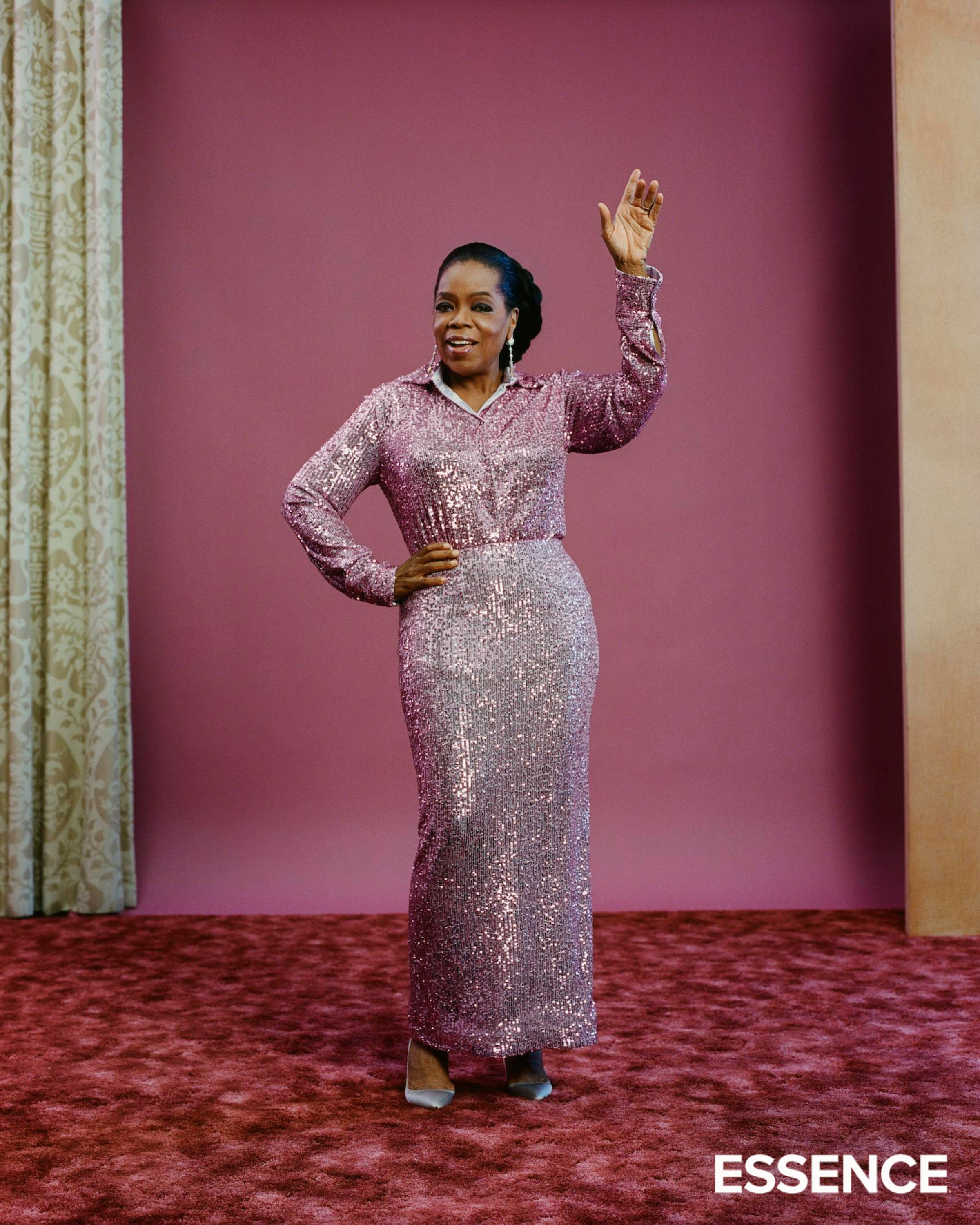
Oprah Winfrey: How did you all respond to learning that you were going to be a part of The Color Purple?
Danielle Brooks: Finding out that I got the role of Sofia, for the second time, was the best gift ever. It was two days after my birthday. They tricked me! They were like, “You’ve got one more call with the director, Blitz Bazawule.” I’m thinking, I’ve had so many calls—what are you talking about? All of a sudden, Ms. Oprah Winfrey pops up on the screen. I was very shocked, like OMG! She chose me for this!
Oprah: I said, “I’m passing the baton.” I didn’t realize in that moment that you were going to take the baton and run with it! Years ago, Taraji, you turned down an offer to be a part of The Color Purple on Broadway. Tell us about that.
Taraji P. Henson: I did. I was scared. I was scared I was going to blow out my vocal chords.
Oprah: But you were ready this time.
Taraji: I was ready this time. You go in the studio, you sing the song, and then they play it on the set. So you don’t have to really sing full-out. It’s the difference between singing that one time in the studio [and] singing eight nights in a row on Broadway.
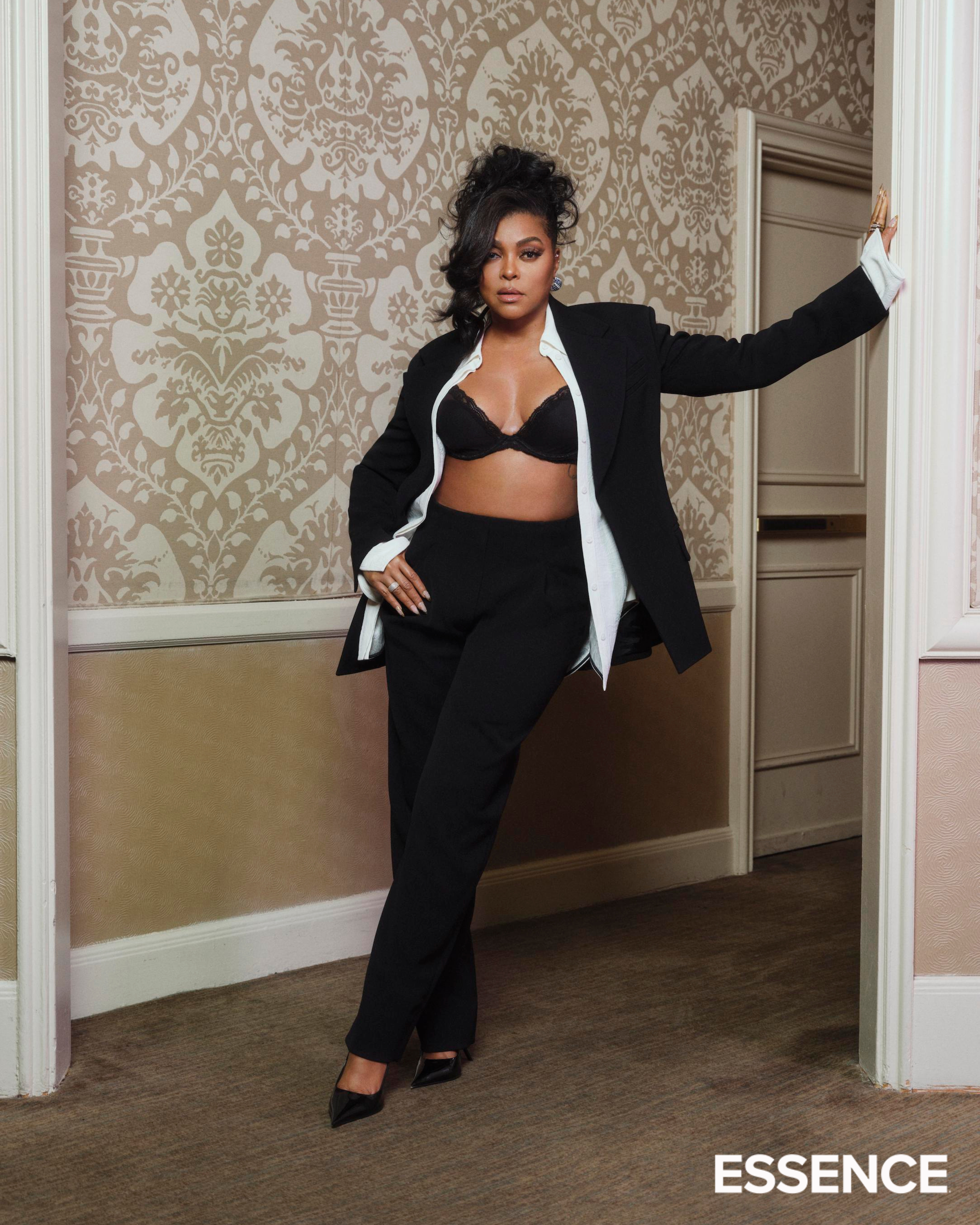
Oprah: I remember we waited and waited to hear from H.E.R.’s team. Your people were like, “Well, she may be on tour.” You have so many other things going on. I remember when Scott Sanders called with the news that [you] said yes!
H.E.R.: I was so excited. I was a little afraid—not afraid, but I was nervous. I was taking on so much. But everything happens for a reason. And I’m so grateful. I learned so much being around you guys. I’m just ready to do more.
Fantasia Barrino: I was a little fanned out, because I listen to you all the time. And meeting you—I mean, you are Squeak: sweet, kind and loving.
Oprah: What was your reaction to learning that you’d gotten the role, Taraji?
Taraji: I saved my recording. I don’t answer calls from numbers that I don’t know, and Oprah’s number comes up unknown. Tyler Perry hit me and was like, “Are you answering your phone?” I was like, “Why?” He said, “Girl, just answer the phone!” I’ll never forget the day. I was so nervous. What do you say to Oprah? I was practicing my, “Hi! Hello! Yes, Oprah!” And finally she came on the phone and told me, “Shug Avery is coming to town!” It was the best moment ever.
Oprah: How about you, Fantasia? How did you react?
Fantasia: I started shouting, I think.
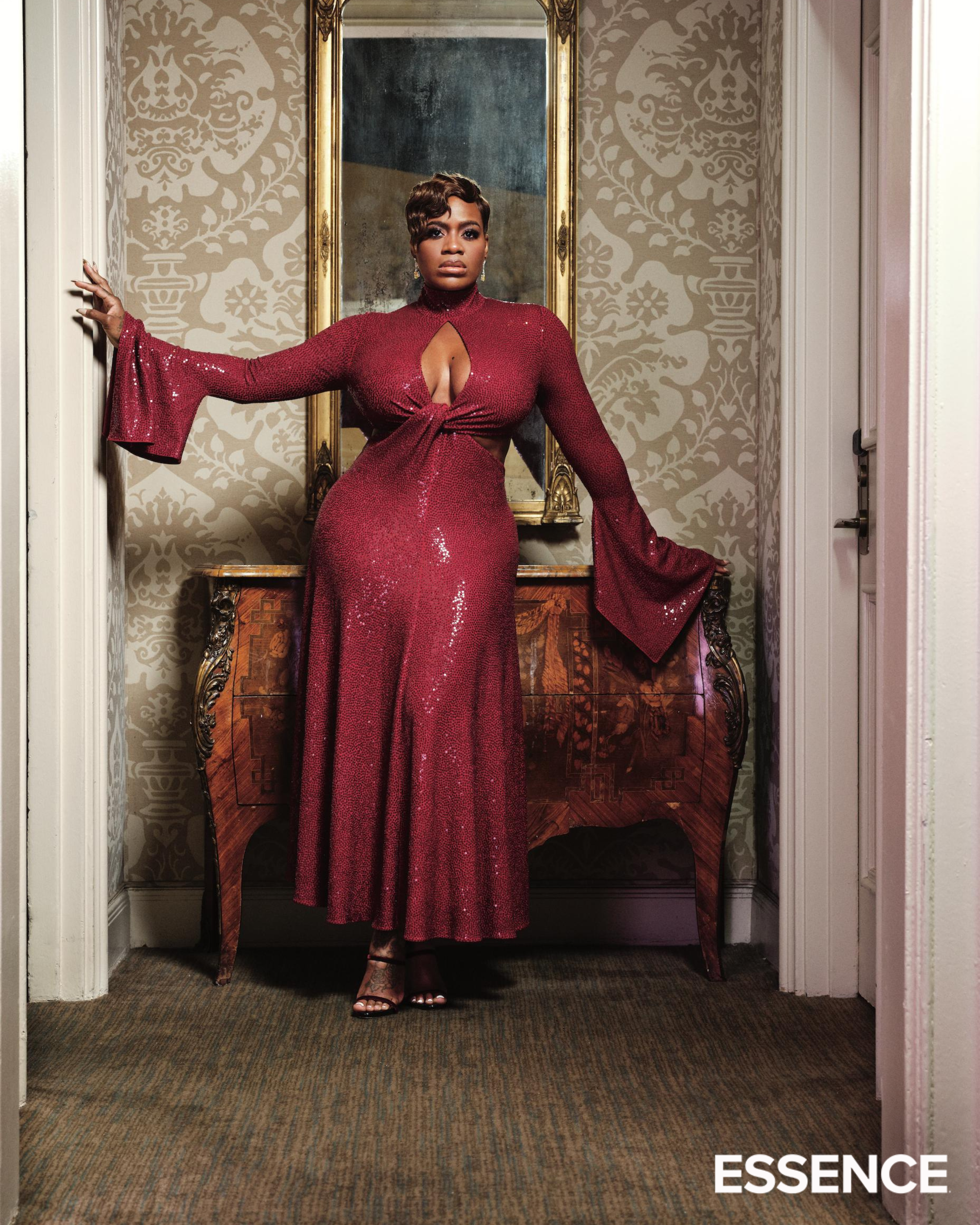
Oprah: You started shouting?
Fantasia: I started shouting. I ran through the house. I had just had my baby and was trying to bounce back. I kept thinking, This is not going to come through. In the beginning, I wasn’t going to take the role—because I knew I was going to have to step into some things that I’d buried.
Oprah: I’m so glad you decided yes. Did you know that when we did the original film, Quincy Jones went to Tina Turner to play Shug Avery? Tina said, “I cannot step back into that world. I’ve already lived it with Ike.” Margaret Avery stepped into the role and did a magnificent job. I understand that you have to relive a lot of trauma. Was that the case for you during this filming, Fantasia?
Fantasia: It was. But I had an amazing cast to support me.
Taraji: I know when you’re doing something so heavy like this, it can be triggering. You have to learn to live in between takes.
H.E.R.: It’s the sacrifice you make sometimes for the art, right? They say, “What’s bad for the heart is good for the art.” As storytellers, we take those chances, and we tell our stories in different ways, and it’s for a greater good. You never know how many people you impact.
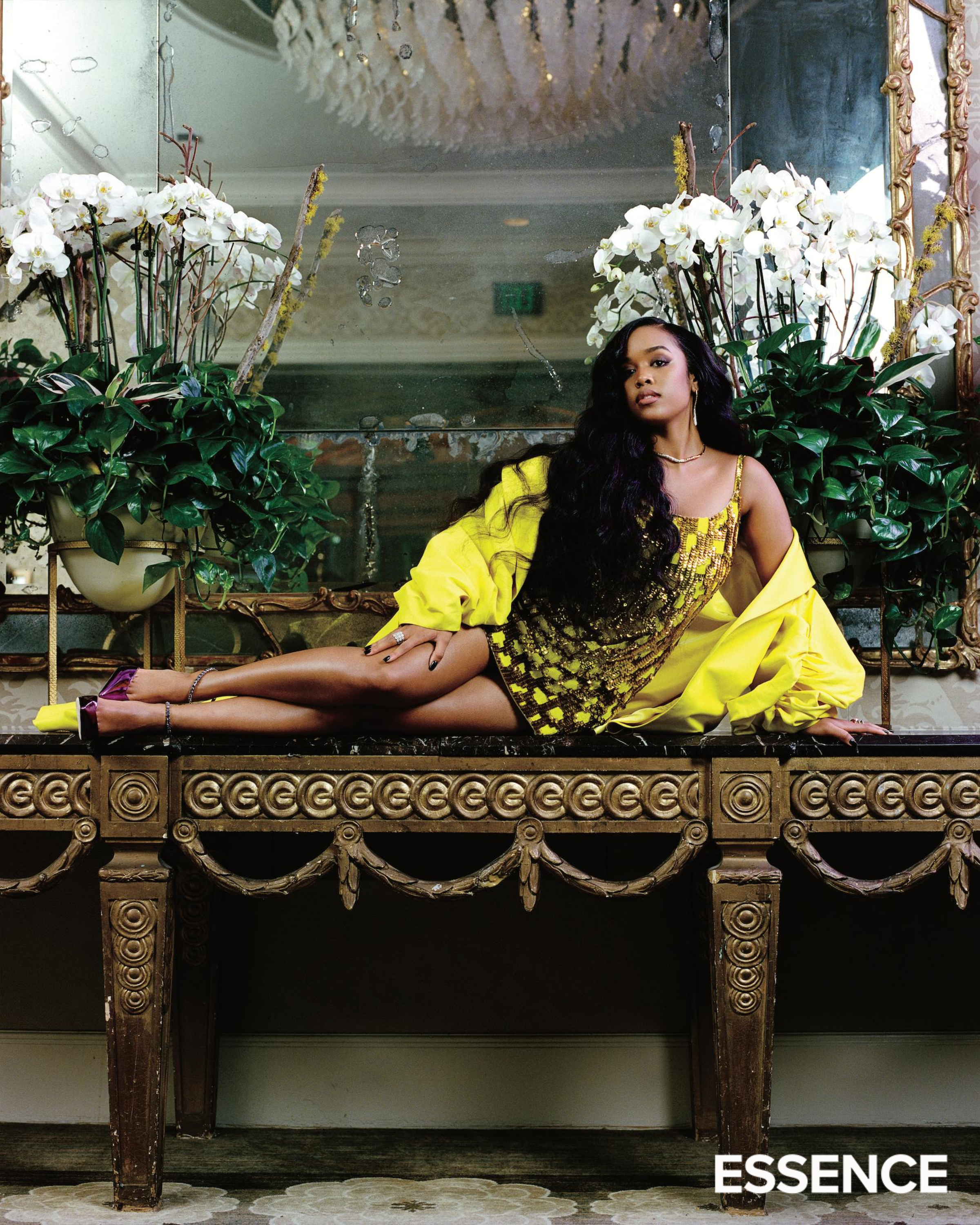
Oprah: Most of the time, when actors see a film for the first time, they’re only looking at themselves. But if you see the film for the first time and you get lost in it, then everybody else will too. Fantasia, you said you lost yourself.
Fantasia: But I came out healed. I’m glad that I did it. I am free from some things that I was holding on to.
Taraji: For me, Black sisterhood is everything. My best friend has been my best friend since the seventh grade. I’ve always been a “girl’s girl.” I guess I get that from my mother. I’ve just always been around women and these incredible, loving relationships. I carried that into the entertainment industry. That’s why that hug went viral, when Viola and I were up for the same Emmy—that was genuine. That was visceral. That flows. That’s who I am. And that’s what I used as Shug—she comes and she saves the women. Because she saved herself.
Oprah: I think that this is a movie that people will celebrate with their families. But I think women in particular will be healed from this movie and its portrayal of sisterhood.
Fantasia: Do you feel like we were healed?
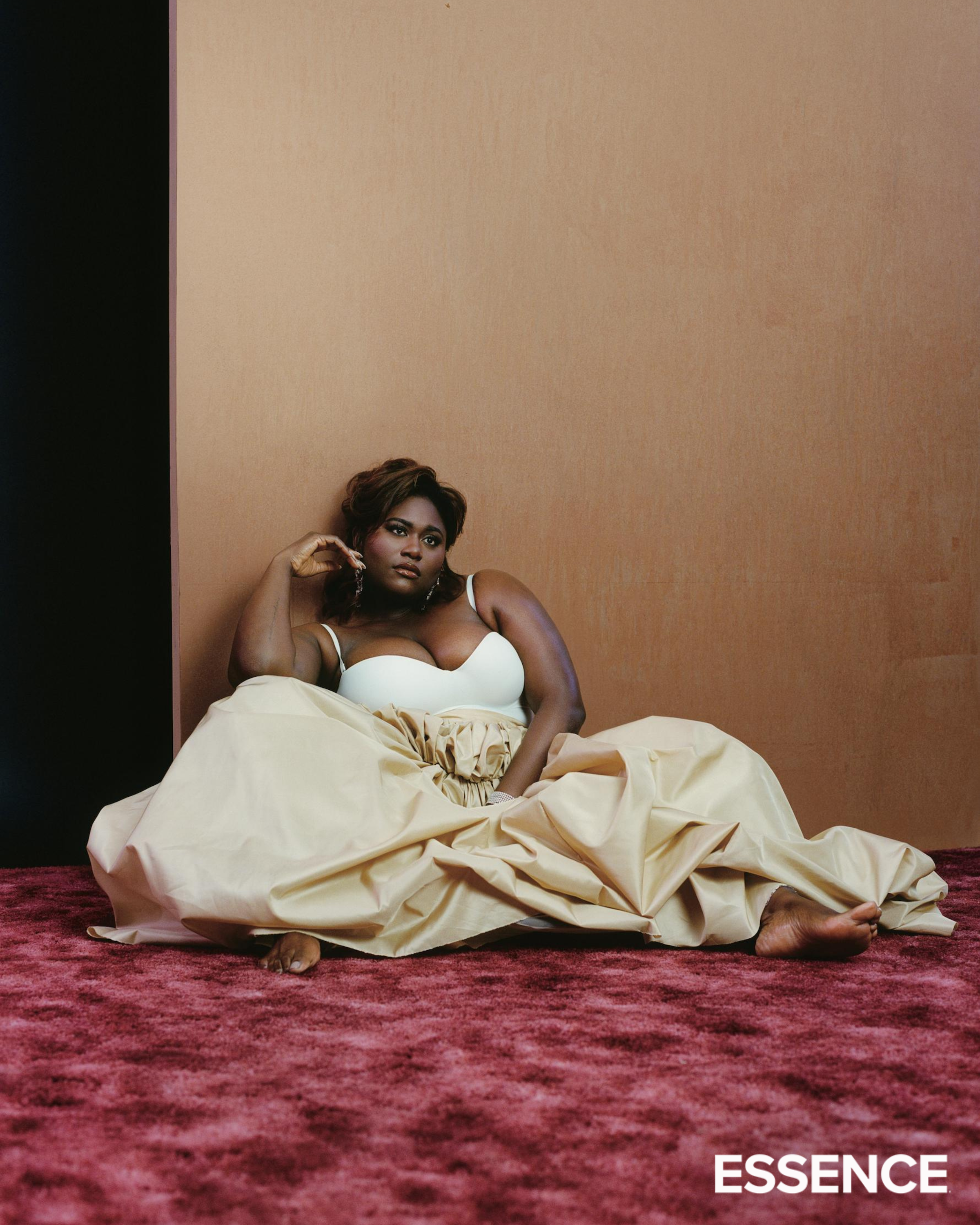
Danielle: Absolutely. And we also know where to go when we are still feeling broken. I was having a really rough week not too long ago, and I went to the park—something told me to turn on The Color Purple tracks. And I started listening to “I’m Here.” I needed those words. This music is timeless—you can go back to it and hear Black women’s voices tell you that you are here, you are beautiful, you are enough.
Oprah: This has a legacy—the book Alice Walker wrote, then our film version in 1985, then the musical in 2005 and again in 2015. And now here we are. It just keeps evolving. If given the opportunity, what would you say to the women who played your characters in the original 1985 cast of The Color Purple?
Fantasia: I would say thank you, Ms. Whoopi Goldberg, for not being afraid to play Celie. For being honest. Thank you for paving the way for girls like myself.
Taraji: I would say to Margaret Avery: You taught me how to be sexy and how to see myself as a fully realized sexy woman. This industry can do a job on you and give you some insecurities. And when I found Ms. Shug Avery, she just made me feel like a woman. I was the one who always covered up. I didn’t feel right in my body. So to see this beautiful Black woman on the screen made me feel seen.
H.E.R.: Ms. Rae Dawn Chong [“Squeak”], thank you for giving me an opportunity to show myself. A lot of people know me and my music, but they don’t really know me. They’re getting to see me: Who I am, having fun and feeling empowered.
Danielle: This is pretty cool. I don’t know if I can do this without crying, because this is special.
Oprah: Baby girl.
Danielle: I just want to thank you, Ms. Oprah, for surrendering to God and his plan for your life. You have shown me how to do that. Thank you for laying the blueprint for Sofia—because I know that she’s changed your life, and I can feel that mine is about to shift, too. Thank you for leaving space for me but also being there, to hold my hand and answer that phone call when I needed you. You have been such a light, such a beautiful soul.
Oprah: Thank you all for this. I can’t even begin to tell you what it means to me—a person who wanted nothing more in my life than to be in The Color Purple. And God taught me to surrender—that was the big lesson for me. They were only offering $35,000 to be in this film, and it is the best $35,000 I ever earned. It changed everything and taught me so much. It is God moving through my life. And to have all of you beautiful Black women bearing witness to the story, as the story moves forward, means so much. I believe that what Fantasia has said is true: Everybody who comes to see our film is going to be touched. They will be moved. And they will be healed. So thank you for the blessing.
EDITORS’ NOTE: This interview has been edited for brevity and clarity. We recognize Black creatives are still fighting for their respect and equity; this fight has been displayed through this year’s labor strikes. It is important for us to let our readers know that ESSENCE conducted the interview and photo shoot for our cover story in May 2023.
Photography by Mickalene Thomas
Styling by Corey Stokes, SPREAD 1 CREDITS: Taraji wears Roland Mouret clothing, Rene Caovilla heels, Van Cleef & Arpels jewelry. Danielle wears Harbison clothing, Gismondi 1754 jewelry. Oprah wears Dries van Noten suit, Alexis Bittar earrings. Fantasia wears Moschino clothing and gloves, Anabela Chan jewelry. H.E.R. wears Brunello Cucinelli top, Ajovang skirt, Anabela Chan earrings, Kallati rings, Vera Belleza jewelry and Le Vian jewelry.
SPREAD 2 CREDITS: On Danielle: Wolford top, Ajovang skirt.
SPREAD 3 CREDITS: Taraji wears Proenza Schouler clothing, Joseph Saidian & Sons earrings, Le Vian rings, Skims underpinnings.
SPREAD 4 CREDITS: Fantasia wears clothing by Michael Kors Collection, Sophia Webster heels, Alexis Bittar jewelry. On H.E.R.: Monique Lhuillier clothing, Jimmy Choo heels, Alexis Bittar jewelry, Kallati ring.
SPREAD 5 CREDITS: Oprah wears Tom Ford -clothing, Christian Louboutin shoes, Alexis Bittar jewelry.